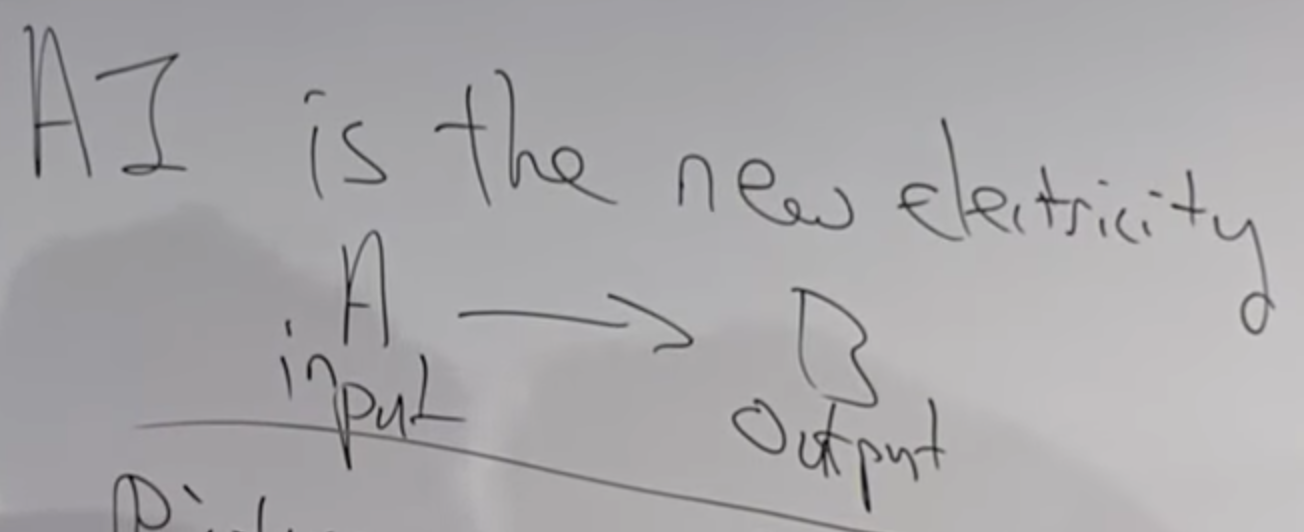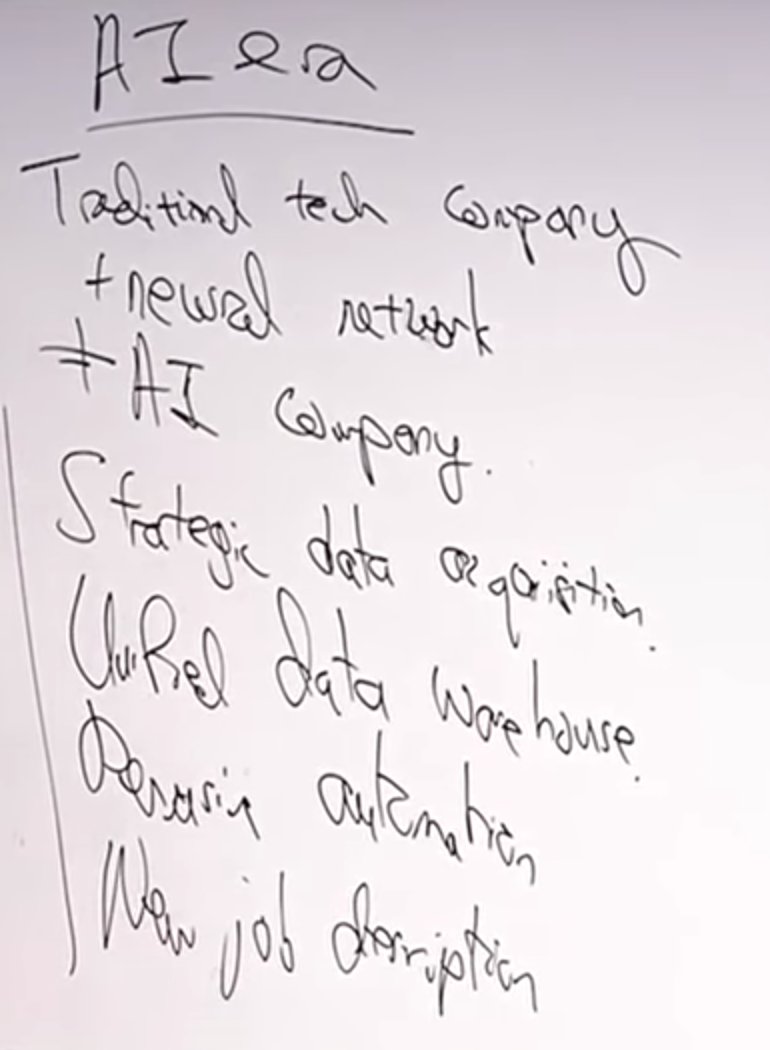Don't worry, we are all doing AI now
Over the last few years, “AI” has become a hot topic, but also a controversial topic, as people disagree about whether a certain company or piece of work is “really AI” or “just pretending to be AI to get funding”. I was struggled with this myself when I was asked recently to report on “AI in drug discovery” for a client. As I debated about whether certain projects were “really AI” or not, I came across a that laid my concerns to rest:
I think we can all agree that Andrew Ng is one of the top AI experts in the world, after having run AI efforts at Google Brain and Baidu. In this video he gives a general overview of progress in AI from “traditional AI” to modern neural-network-based techniques, and about the very impressive results achieved in the last 5 years in the latter. There is a key quote in the video regarding “traditional AI”: “for those of you who are technical, what I mean are things like support vector machines, logistic regression”. Holy moly everyone, these technologies were invented in 1958 and 1963! I think that lays to rest any debate about where to draw the line: if you are using data and a computer to predict outcomes, you are doing AI. There is no line.

Of course he does point out that when you have a LOT of data, you are going to get better results with modern “neural network” techniques than you will with “traditional AI”. This screenshot shows his drawing of performance (y-axis) vs available data (x-axis). Note that toward the left side the curves are all touching. This definitely matches my practical experience that for many biotech and pharma-related problems today, datasets are small, and you can get impressive results from “cheap and fast” techniques like Random Forest AI (I’m just going to start calling everything AI now).

But most industries are moving to the right in this graph as they collect more and more data. So more advanced AI techniques will start to become useful and powerful… but only for the companies that have large sets of clean organized data. Here’s another screenshot from this same video where he outlines his predictions for what will defined “an AI company” in the future: strategic data acquisition, unified data warehouse, pervasive automation. I can only think of a few biotech and pharma companies that are taking all three of these seriously today. Some of them are not using any type of “deep learning” or “AI” yet, but hey, those are not even on the list! The list is all about data: companies that take their data seriously are poised to become the leading “AI companies” of the future.
